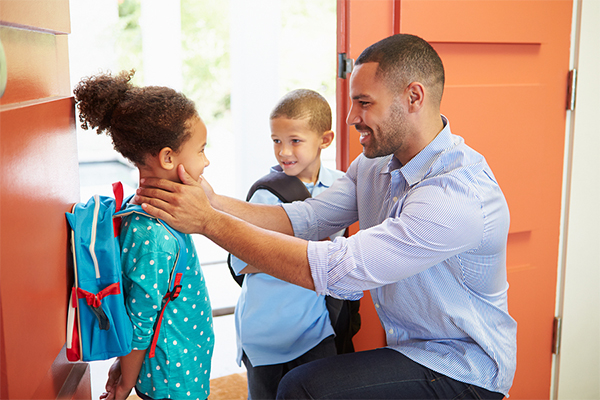Back to school means the end of summer break and again with the long hours of separation between children and parents. For some, school is welcomed by both parties; parents can relax in peace, and kids are finally free from boredom. For others, on the other hand, having to separate for school is emotional torture. Many parents feel anxious about leaving their child at school, especially if the child is younger. The case is more common with children, as separation anxiety is a normal stage of development. However, if this gets to be too severe or continues throughout childhood, your child may have separation anxiety disorder. This condition may need professional treatment, but there are many ways to help deal with this at home.
- Practice separation. Let your child be with another caregiver for short periods of time to get the hang of being apart. It should gradually become easier to handle longer periods of time away from each other.
- Make new surroundings familiar. Sending your child to an unfamiliar place might be easier with a little something to remind him or her of home — like a favorite toy or family picture.
- Talk about school at home. Frequent and casual conversations about school will normalize it and make it seem less intimidating in the long run. So, never forget to ask, “How was school today?”
- Make a “goodbye ritual.” Creating a sign or symbol for temporary goodbyes — from a simple hug to a complex handshake — can be reassuring for a clean separation without extra fuss.
- Don’t give in or show hesitation. If your child is throwing a fit, don’t give in or show signs that you don’t want to leave either. Kids can sense this and will probably make it harder for you to go. Make it clear that you have to leave for now, but that you will see them later. Parents’ confidence can help give children courage.
- Share stories about when you were in school. If you share fond memories about your school experience with your child, both parties will be reminded that school is not a scary place — and everybody has to go through it. Encourage your child to make his or her own fun memories to cherish.
Letting your children go can be really difficult at first. But with a little practice and effort, you can open up the opportunity for them to experience life to the fullest and support them all along the way.
Children with psychiatric and emotional disorders need expert, coordinated care to help them cope with life’s challenges. Our Department of Psychiatry and Health Behavior at the Augusta University Health offers outpatient and inpatient treatment for children ages 6-16 years with emotional and behavioral problems. Call 706-721-9331 or visit augustahealth.org/chog to find out more about Children’s Hospital of Georgia, where kids come first.
Sources: HelpGuide, PBSParents




